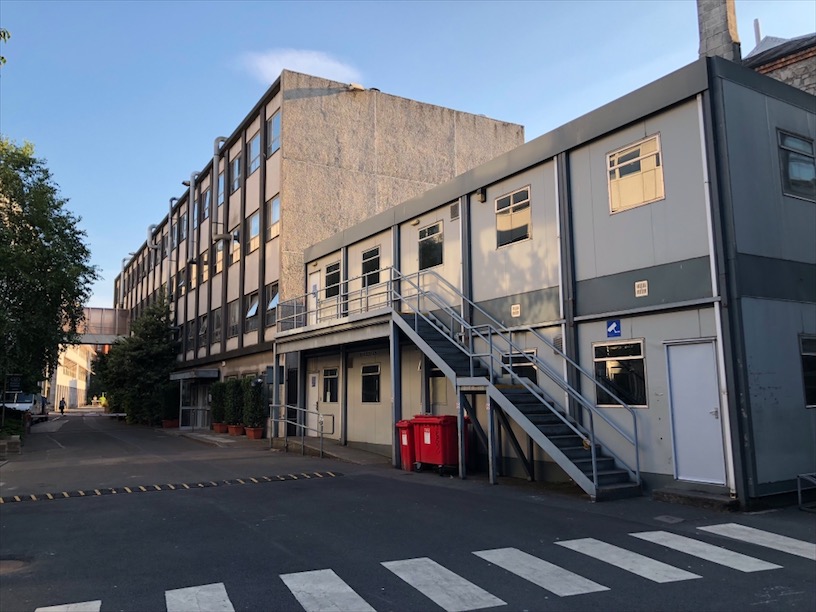Trinity has been given the green light for the demolition of the old biochemistry building, Robert’s laboratory and the PC Huts in the summer, after the approval of a planning permission application.
The demolition will mark the first stage of the construction of the Energy, Environment and Emerging Technologies (E3) Learning Foundry. The new building will primarily house undergraduate students and will not include any extra lecture halls. Instead, the new building will feature new lab and co-working spaces.
The College submitted a planning permission application over the summer for the demolition of the buildings to make way for the new institute.
In a tweet, College Bursar Veronica Campbell called this “another milestone for the E3 Learning Foundry”. She said that works would start next summer. Writing in The University Times in September, Campbell said: “I am sure that many staff and students will be happy to say farewell to the PC huts!”
In May, Trinity launched the plan for the E3 Institute, announcing that the project had won the support of prominent philanthropist Martin Naughton, who gave the country’s largest-ever private donation to E3. Speaking at the launch, Provost Patrick Prendergast stated that “the new institute will in time change how society solves the many challenges that the world faces. E3 is something new, and not just in Ireland but internationally”.
The redevelopment of the old biochemistry building will see it remodelled to become a new on-campus teaching facility, which is set to cost €60 million in total. Although certain parts of the building are still in use for teaching purposes, students will be temporarily relocated to the Trinity Biomedical Sciences Institute (TBSI) while construction is underway.
E3 will accommodate 1,800 extra students undertaking STEM courses – marking a 50 per cent increase in science student numbers and an overall increase of 10 per cent in student numbers.
The E3 institute will be housed between two buildings – one on the east end of campus and the other in Trinity Technology and Enterprise Campus. This first building will be used primarily for teaching and learning, while the second building will house researchers. The first phase of the project has secured €25 million in funding from Naughton and €15 million from the state.







